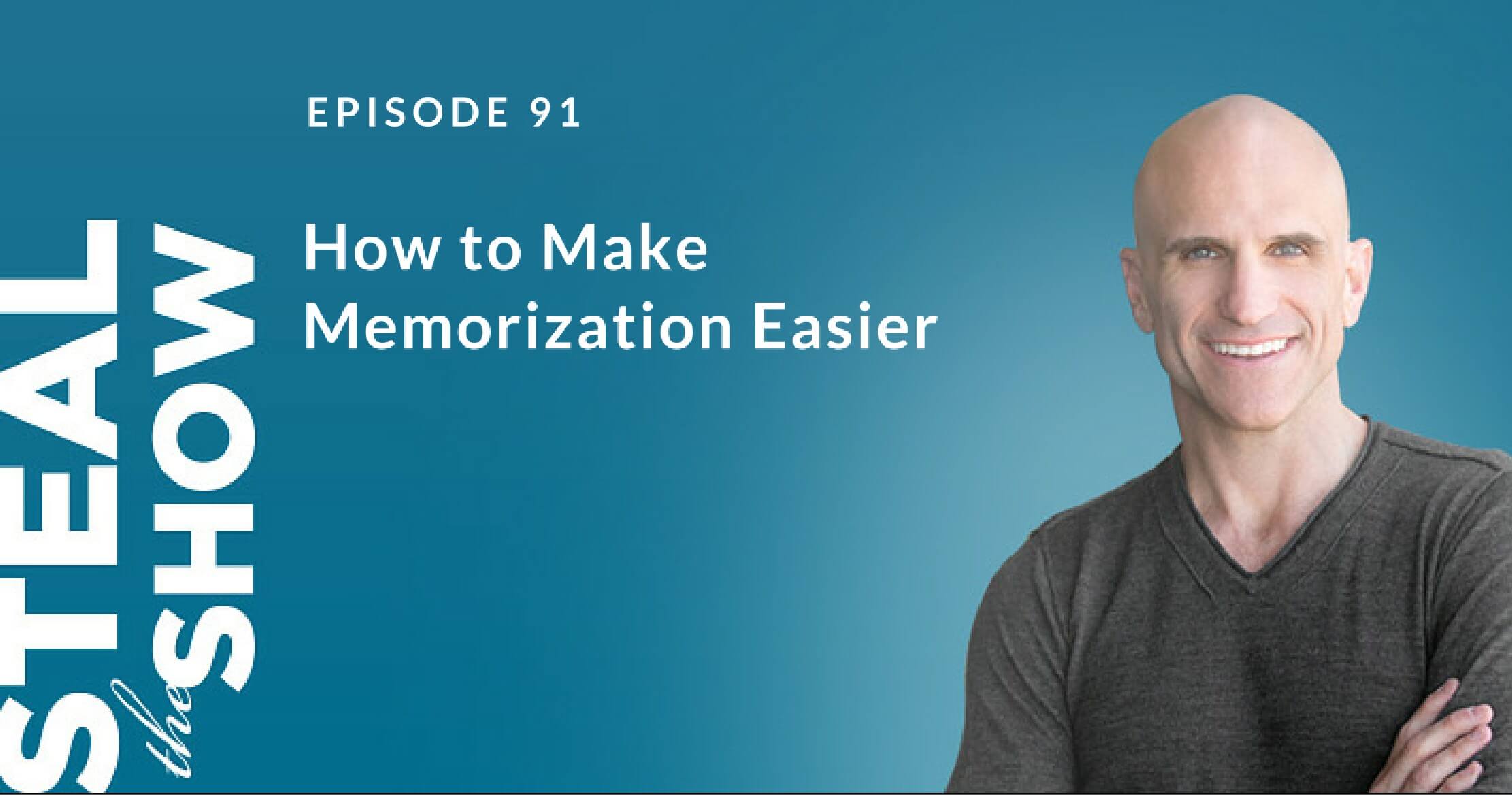00:01 Welcome to Steal the Show with Michael Port. This is Michael. Today’s episode is based on a question that came in from Christian Grieco. Now Christian wanted to know, well first he said, “I hope you’re doing well.” And then he said, “I’ve been wondering about something for a while and finally thought your brilliance will shine through like it always does and you will hone in on a mindset or strategy that will be perfect and seem obvious if I reach out and ask.” He actually wrote that. That wasn’t me. He said, “He’s curious as to why you think when I work on memorization, walking on a treadmill, it seems to lead to better flow and ability to improvise the speech compared to when I stand or sit. I glance at the script much less often and I feel more connected to the material when moving at four miles per hour. Besides expecting a treadmill to be on stage when I perform, what insight can you share that would achieve the same result. Be well, Christian.”
01:03 Christian is bringing up a really, really interesting concept and this is something that I have employed for years. Years, and years, and years, and years. Ever since I started acting, you know I’m dyslexic and when I first was tasked with memorizing lines, I found it a little bit difficult. But I was always a very physical person. I played sports and I felt comfortable in my body. So I would sit on the exercise bike and work on memorizing my lines and I found that I could memorize them so much more quickly and that became part of my routine. Sometimes if I didn’t feel like exercising, then I would just walk. I would walk the streets of Manhattan, talking out loud. Now, not to myself but to the other characters that I was speaking to in the script. Now, of course, it’s New York City so people either assume that you’re an actor or you’re absolutely out of your mind or both, which may be the case often, so nobody bothers you.
02:13 Now, I imagine walking around in your town talking to yourself might not be typical but you can certainly do it in your neighborhood or in the woods or somewhere where it’s a little bit more private. But even 20 minutes of exercise helps facilitate information processing and memory functions. And movement helps create new neural pathways faster. This is something that has been shown to be true again and again and again. That even 20 minutes of exercise helps facilitate information processing and memory function. So, certainly, it’s good to take 20 minutes of exercise each day to help with all of the different information processing that you need to do. But if you work on your material for your presentations while you are doing some kind of exercise, walking on the treadmill, using the elliptical. We have an elliptical here in the house which I find helpful or walking outside or jogging, something that you can do and also focus on the material in your presentation can be very helpful.
03:30 So it helps not just with the general information processing you need to do through the day but if you actually work on your material while you’re doing that exercise, you will process or consume that information more quickly, commit it to memory more quickly and be able to draw on it more quickly. Now, this is in part based on the theory that is referred to as embodied cognition. Embodied cognition. And it suggests that what goes on in our minds stems from our actions and interactions with the world around us. It means that if you think and learn in a purely abstract way, it might actually make your lessons, whatever you’re learning, harder to understand and remember. So science is beginning to back up the idea that actions really speak louder than words. There’s a psychologist named Spencer Kelly at Colgate University and he has found that people spend three times as much time gesturing when they think it is particularly important that they get a message across. Now that may seem obvious.
04:52 Intuitively you go, “Yeah, of course, that makes sense.” That people spend three times as much time gesturing when they think it’s particularly important that they get a message across. But what that does is it suggests that even if only at the subconscious level, that we appreciate the communicative value of our body language. Not just that other people appreciate it but we appreciate it. Think about that for a second. If you put your intentions in your body, it’s easier for your brain to memorize those intentions and the words that you wanna use to get those intentions across than if you were not using your body at all. So, it helps you learn and of course the more physical you are in your presentations, the more likely it is that your audiences will process that information more quickly and consume it better.
06:06 So people can pick up new concepts more effectively, often if they’re taught to mirror and repeat the gestures that their teacher uses. So people will mirror your body language even if they’re sitting in a seat, it helps them when you are very physical. So the more physical you are when you’re working on your material, when you’re studying your material, the more the audience can connect with what you are sharing. Not just intellectually, but physically. So, this is why you get up on your feet and rehearse out loud as if you are performing, which is very different than wandering around your house aimlessly, going over your material in your head. Those two things are very different and they don’t work very well.
07:09 Hope that answers your question. Thank you so much for giving me the opportunity to answer it. Thank you for your kind words Christian, in the email. And if anybody has any questions, just shoot ’em to questions at heroicpublicspeaking.com, questions at heroicpublicspeaking.com. And of course, I answer thousands of questions in my book, Steal the Show. So go buy it anywhere books are sold. Paperback edition just came out, so now you can pick it up for I think about 11 bucks or something. I think it’s a pretty good deal. Thank you for giving me the opportunity to be in service of you. I never take it for granted. And I hope that you’ll tune in again soon. Bye for now.







